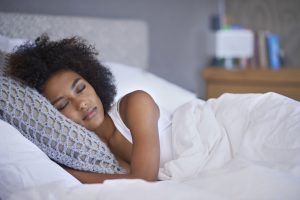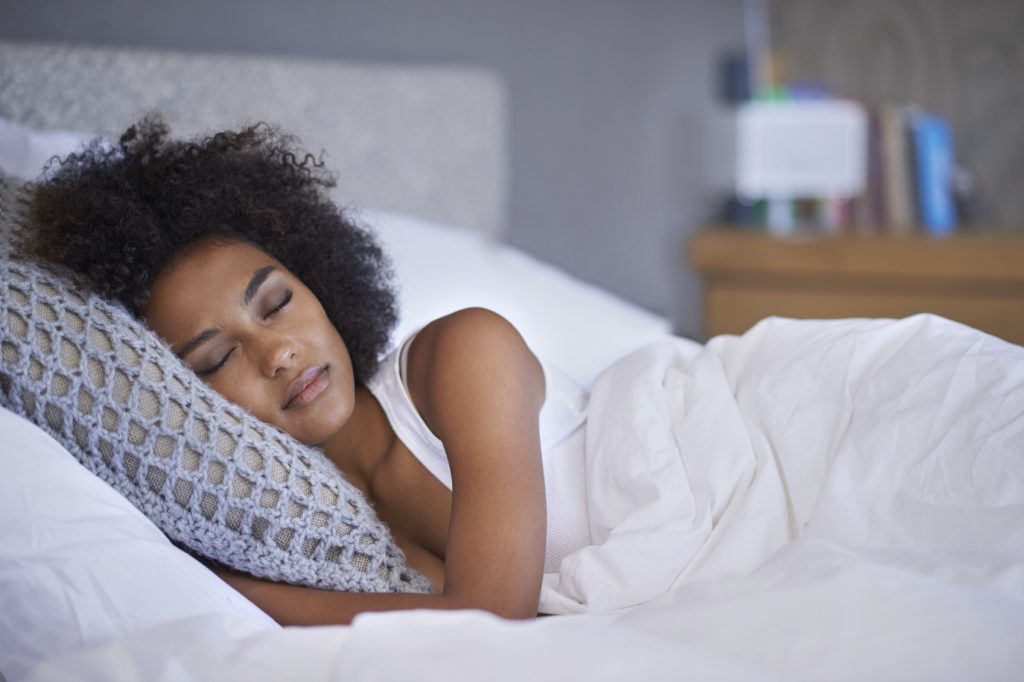
Good sleep doesn’t just mean lots of sleep: it means the right kind of sleep. Sleep affects our ability to use language, sustain attention, understand what we are reading, and summarise what we are hearing; if we compromise on our sleep, we compromise on our performance, our mood, and our interpersonal relationships.
HEAL – The four pillars of good sleep.
There are four main factors that affect the quality of your sleep:
Health
Environment
Attitude
Lifestyle
Sleep has also been shown to protect the immune system. The amount that each person needs is different; however, it is recommended that a healthy adult should sleep, on average, between seven and nine hours a night.
The important thing is that you get good-quality sleep. The following advice can help to HEAL your sleep problems.
Health
As anyone who has tried to get to sleep with a blocked nose or headache knows, physical health problems can stop you from getting a good night’s sleep.
Speaking to your GP or pharmacist about appropriate medication can help with this. Try to avoid taking medication without speaking to a medical professional, as sometimes the medication itself can stop you from sleeping properly if it’s not right for you.
Mental health problems like anxiety and depression can also affect our sleep. In these cases, a combined approach to tackle both the mental health issue and the poor sleep is often the most effective method of treatment. Speak to your GP or mental health worker (if you have one) for advice on this, or have a look at the ‘Attitude’ and ‘Lifestyle’ sections of this guide for general ways to maintain good mental wellbeing.
Environment
The bedroom should be somewhere that we associate with sleep. Where possible, you should try to remove distractions from you bedroom. It is better to watch TV, play computer games and eat in another room. This will allow you to relax with no distractions in your bedroom.
Be mindful of the presence of gadgets and electronics, such as computers, phones, tablets and TVs. The backlit ‘blue light’ displays suppress melatonin production – the hormone that helps you sleep; the suppression of melatonin causes sleep disruption. You should stop using these devices two hours before you go to sleep to reduce their impact on your sleeping.
Although everyone is different and has their own personal preferences, the common factors that can affect our sleep are light, noise and temperature. Too much light or noise can prevent you from falling asleep or staying asleep. If you have sources of light and noise that you can’t control, such as light from a street lamp or noise from a neighbour’s music, you might want to use an eye mask or ear plugs.
The temperature of the room is also important. A heater or thicker duvet can help if you regularly find yourself too cold at night; a thinner cover or opening a window can help if you’re too hot. If you are struggling to work out the best sleep environment for you, then it can be useful to keep a sleep diary (there’s one in the back of this guide) to keep track of the conditions that helped you get a good night’s sleep.
Sleep fact 01
The Beatles’ song ‘Yesterday’ came to Paul McCartney in a dream. It was only when no one he spoke to recognised the tune that he realised he had written it himself.
Attitude
Lying awake in bed, particularly before an important day, can make us worry. However, this worry then makes it harder for us to get to sleep.
Progressive relaxation techniques can help you to relax and unwind at these times. A free audio guide for learning progressive relaxation techniques can be downloaded from the Mental Health Foundation’s sleep website: www.HowDidYouSleep.org. Alternatively, instead of staying in bed and getting more and more frustrated, you could get up and make yourself a warm drink, such as warm milk, and return to bed when you feel sleepier.
If you continue to have sleep problems for more than a month, you could speak with your GP about the possibility of using cognitive behavioural therapy (CBT). CBT is used to treat some mental health problems. It can encourage a more positive attitude, which can then help to break the cycle of negative thoughts causing your lack of sleep, and thus can help you to develop a healthier sleep pattern.
Alternatively, practices like mindfulness (a type of meditation) can help by reducing stress and anxiety levels. Mindfulness can be practised without a GP prescription.
Lifestyle
There are a number of things that you can do every day to improve the quality of your sleep.
Eating rice, oats and dairy products can produce chemicals that increase our desire to sleep. However, food and drink containing lots of caffeine or sugar can keep you awake, so drinking less tea and coffee and eating less chocolate and other sugary foods late in the day might help you to sleep better.
Although it can make you feel tired and can help you get to sleep, alcohol often impairs the quality of your sleep and makes you more likely to wake up during the night as the effects wear off, and you may need to go to the toilet frequently or get up to drink water if you are dehydrated.
Exercising on a regular basis is thought to help us sleep, as, among other things, it can help to reduce anxiety and relieve stress. It is, however, important to exercise at the right time. Exercising earlier in the day is better, as exercise increases the body’s adrenaline production, making it more difficult to sleep if done just before bedtime.
Sleep fact 02
Driver sleepiness may contribute to around 20% of accidents on long journeys.
Tips from the sleep doctor
Professor Colin Espie, Director of the Glasgow University Sleep Centre and co-founder of Sleepio, offers his five top tips for a great night’s sleep.
1. Don’t get caught napping!
If you have trouble sleeping, you may feel tempted to catch up on sleep by taking naps. However, unless you’re feeling dangerously sleepy (while driving or operating machinery, for instance), this usually does more harm than good as it makes it more difficult to sleep at night. If you feel tired during the day, get up and take a walk around, get some fresh air, or do something challenging for a short while, like a crossword or a Sudoku.
2. If you’re not tired, get up.
If you’re finding it difficult to get to sleep, don’t just lie there worrying. Get up for a few minutes and get a drink (no sugar or caffeine, remember!), and go back to bed when you’re feeling a bit sleepier.
3. Set yourself a ‘get fit’ plan.
Eating healthily and getting regular exercise are great ways of helping yourself sleep better. However, plan your meals and exercise to avoid exercising or eating a big meal after mid-evening: doing either of these too close to your bedtime can stop you from sleeping.
4. Don’t stress it!
Thinking about sleep too much or trying to force yourself to sleep will only keep you awake. Learning how to relax both your body and mind instead will help you to get to sleep much more easily. I have provided a free audio MP3 of relaxation techniques on the Mental Health Foundation’s sleep website (www.HowDidYouSleep.org), which may help you with this.
5. Keep a sleep diary.
The amount of noise, light, and distractions, what and when you eat, and the temperature of your bedroom can affect how well you sleep. Keeping a sleep diary to make a note of what the conditions were when you went to bed the night before can be useful for letting you look back and see what has and what hasn’t worked for you. It also helps you to see how your sleep varies from night to night, and might help you note patterns in your sleeping.

